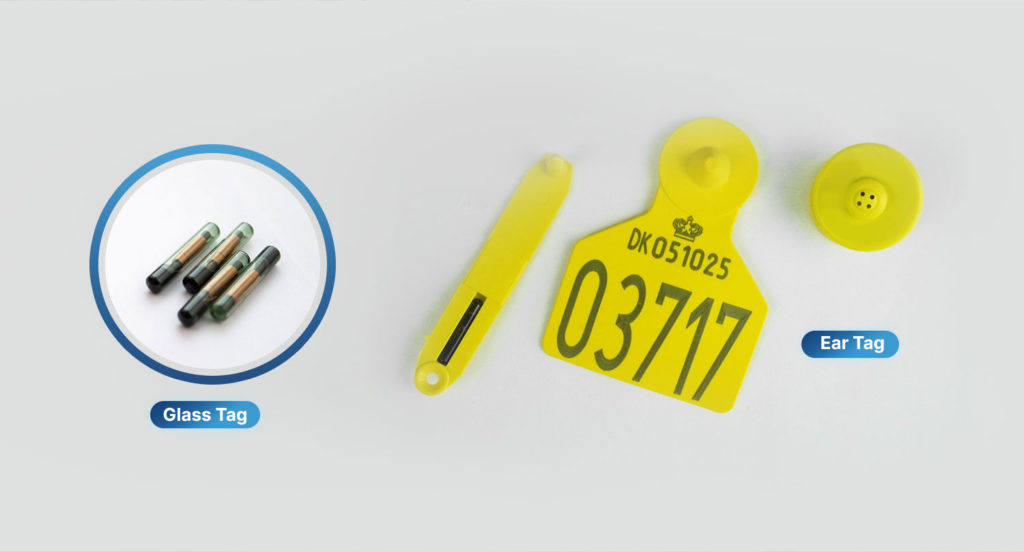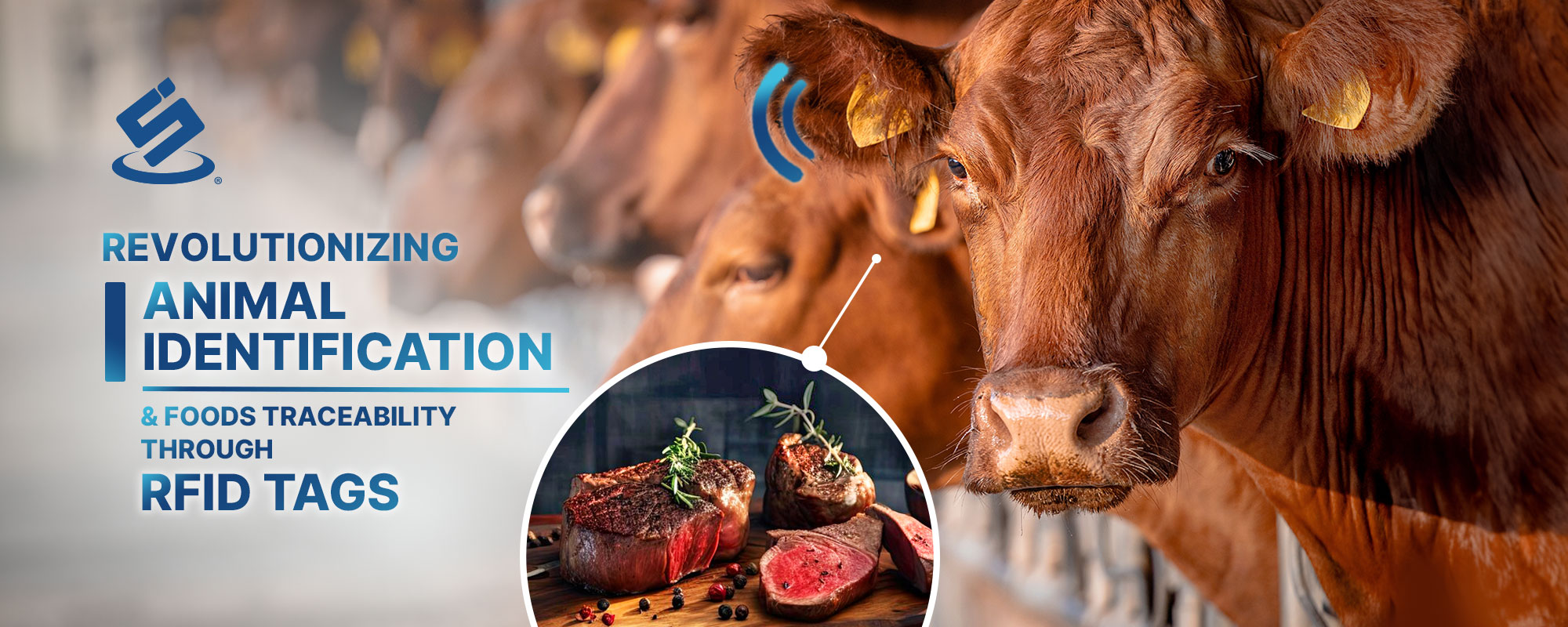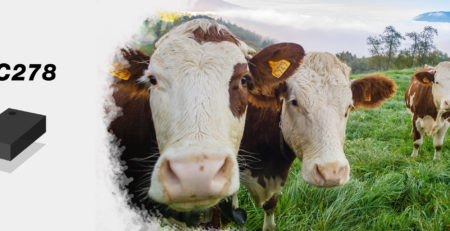Revolutionizing Animal Identification and Foods Traceability through RFID Tags
In today’s global food market, ensuring the safety, quality, and authenticity of food from animals such as meat, poultry, and seafood is of paramount importance. In addressing the challenges posed by livestock disease pandemics, particularly Foot and Mouth Disease (FMD), the adoption of RFID technology emerges as a transformative solution. Notably, the utilization of advanced RFID chips, like those offered by Silicon Craft Technology PLC—specifically, the SIC278 and SIC279 models—plays a pivotal role in enhancing disease monitoring and control within the livestock industry. This technology ultimately raises food safety standards and boosts consumer confidence.
Let’s discover how RFID technology employs radio waves to identify and track objects, transforming animal identification and traceability systems.
The Power of RFID Technology
RFID technology comprises RFID tags attached to individual products and RFID readers that capture and transmit data wirelessly. The application of RFID technology in animal identification and food traceability offers several key advantages:
- Individual Item Tracking:
Each animal or batch of animal-based foods can be tagged with a unique RFID identifier, enabling precise tracking throughout the supply chain. This level of granularity allows stakeholders to trace the origin of products, monitor their movement, and verify their authenticity with unparalleled accuracy.
- Real-Time Monitoring:
RFID tags can transmit data in real-time, providing instant visibility into the whereabouts and condition of animal-based foods. This real-time monitoring capability enables stakeholders to identify and respond to potential issues such as spoilage, contamination, or tampering promptly, minimizing risks to food safety and quality.
- Efficient Recall Management:
In the event of a food safety recall such as contamination in products, the processing company conducts a thorough investigation to determine the root cause of the contamination and implement corrective actions to prevent future incidents. This may involve enhancing sanitation protocols, implementing stricter quality control measures, and improving traceability systems to track the movement of products throughout the supply chain. RFID technology facilitates rapid and targeted recall management. By identifying affected products based on their unique RFID identifiers, stakeholders can pinpoint the precise location and disposition of recalled items, minimizing the impact on consumers and reducing waste.
- Compliance and Certification:
RFID-enabled traceability systems streamline compliance with regulatory requirements and certification standards governing the production, processing, and distribution of animal-based foods. By maintaining comprehensive digital records of product movement and handling, producers can demonstrate compliance with stringent food safety and quality standards.
Implementation in Practice
The implementation of RFID technology in animal identification and foods traceability spans the entire supply chain, from farm to table:
- On-Farm Identification:
RFID tags are attached to individual animals or batches of animal-based foods at the farm level. These tags can contain essential information such as animal identification numbers, breed, age, vaccination history, and other relevant data.

Fig 1: RFID glass tag in ear tag which store basic information such as unique ID of animal.
- Processing and Distribution:
In processing facilities and distribution centers, RFID tags enable seamless tracking of animal-based foods as they are transformed, packaged, and shipped to various destinations. This visibility ensures that products are handled and transported under the appropriate conditions, maintaining freshness and safety.
- Retail and Consumer Engagement:
At the retail level, RFID-enabled packaging or labels provide consumers with access to detailed information about the origin, production methods, and safety measures employed for animal-based diet. By scanning RFID tags, consumers can make informed purchasing decisions based on factors such as animal welfare, sustainability, and product freshness.
Trace and Track
with Silicon Craft’s Animal Identification Chip
SIC278 and SIC279 are RFID chip technologies operating in low frequency (LF) RFID, come with animal identification applications. With a stable and high-performance read range[1] because of Silicon Craft’s unique design, they are suitable for livestock management. Moreover, when integrated with other identification technologies, they can support traceability systems for animal-based foods. Please visit SIC278 and SIC279 to access product description to explore more detail you need.
Silicon Craft believes that the best management process is the key to safety in every aspect of life, including food. We are committed to providing innovative solutions to lead the way in assisting and enhancing the quality of life.
[1] Approximately more than 100 cm, up to form factor.












